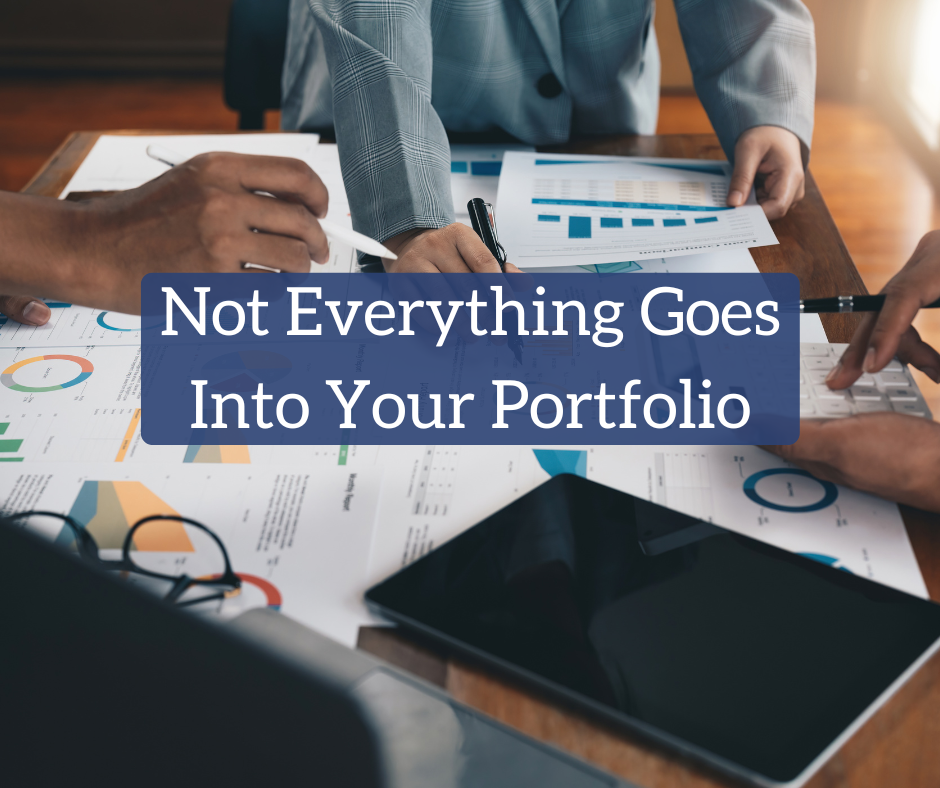 By Dr. Jim Dahle, WCI Founder
By Dr. Jim Dahle, WCI FounderI run into a lot of Do It Yourself (DIY) investors who are trying to figure out how Social Security, a pension, a Single Premium Immediate Annuity (SPIA), or their home equity fits into their portfolio. Newsflash! It doesn’t. None of it.
There are some things that are included in your net worth but not your portfolio. There are some things that don’t go into either. Your portfolio is your investable assets. It has an asset allocation. That asset allocation can and should change based on your need, ability, and desire to take risk. Investing is about risk control more than anything else.
Things That Go into Your Net Worth But Not Your Portfolio
Your net worth is everything you own minus everything you owe. It is the measurement of wealth. It includes all of your assets and all of your liabilities. It includes your portfolio, whether in taxable or in tax-protected accounts of some kind. It includes your home and any mortgage on that home. It includes your cars, jewelry, and other possessions (although I suspect many of us ignore that stuff because it’s a pain to try to value it). It certainly includes auto loans, credit cards, investment-related debts, HELOCs, and other debts.
Things That Don’t Go into Either
But you know what doesn’t go into your net worth, much less your portfolio?
- Your job
- Your spouse’s job
- Any pensions you have
- Social Security
- Any SPIAs you’ve purchased
These are all sources of income, but they are not assets in your portfolio. Now, I agree that it is possible to sell some of these sources of income, just like you might sell your home. If you sell your home, start renting, and put the proceeds from the sale into your portfolio, fine, count it. If you sell your pension or SPIA and put the proceeds into your portfolio, you can go ahead and count that, too. But don’t sit around trying to put some sort of value on your Social Security and count that in your portfolio.
More information here:
Best Investment Portfolios — 150+ Portfolios Better Than Yours
The 15 Questions You Need to Answer to Build Your Investment Portfolio
Reducing the Need for Income
These non-portfolio assets and income sources often reduce your need for income from your portfolio. For example, if you need $120,000 to live on and you have a pension that pays $20,000, Social Security that pays $35,000, and a SPIA that pays $12,000, well, now you only need your portfolio to provide $53,000 a year instead of $120,000. That’s awesome, and (using reverse engineering of the 4% rule) it suggests you could retire on $1.33 million instead of $3 million. But that doesn’t mean you should somehow call the pension $500,000 worth of bonds and Social Security $875,000 worth of bonds or something silly like that. That’s not the way it works.
Even some of your assets reduce the need for income. If you own your home, you save rental payments on a similar home. Less income needed. Same with your car compared to renting one. But you still shouldn’t put these consumption items into your portfolio. Investment properties, yes; homes you live in, no.
Why Do People Do This?
I think people do this for three reasons. First, they often buy these sorts of things with money that came out of a portfolio. A SPIA is a perfect example. Sorry, though, you spent that money on an income stream. It’s gone. It’s no longer in your portfolio.
The second reason I think people do this is because it makes them feel richer. Who wants to be a millionaire when they can be a multi-millionaire by including some value for their Social Security into their net worth statement? But that’s just as dumb as 22-year-olds including all of the value of their future earnings in their net worth.
The third reason people do this is because they saw someone else try to do it and assumed that it was a smart thing to do. It isn’t. So, don’t.
More information here:
How to Build an Investment Portfolio for Long-Term Success
The 90/10 Warren Buffett Portfolio?
If You Can’t Resist
If you must do this for some reason, know that it’s your money, your life, and your decision. Do whatever you want. Investing is a single-player game. It’s you against your goals. I really don’t care what rules you play by. I just don’t think it makes any sense to try to stick consumption items and income streams into your asset allocation.
What do you think? Do you include any of this stuff in your asset allocation? Why or why not?
(Source)



